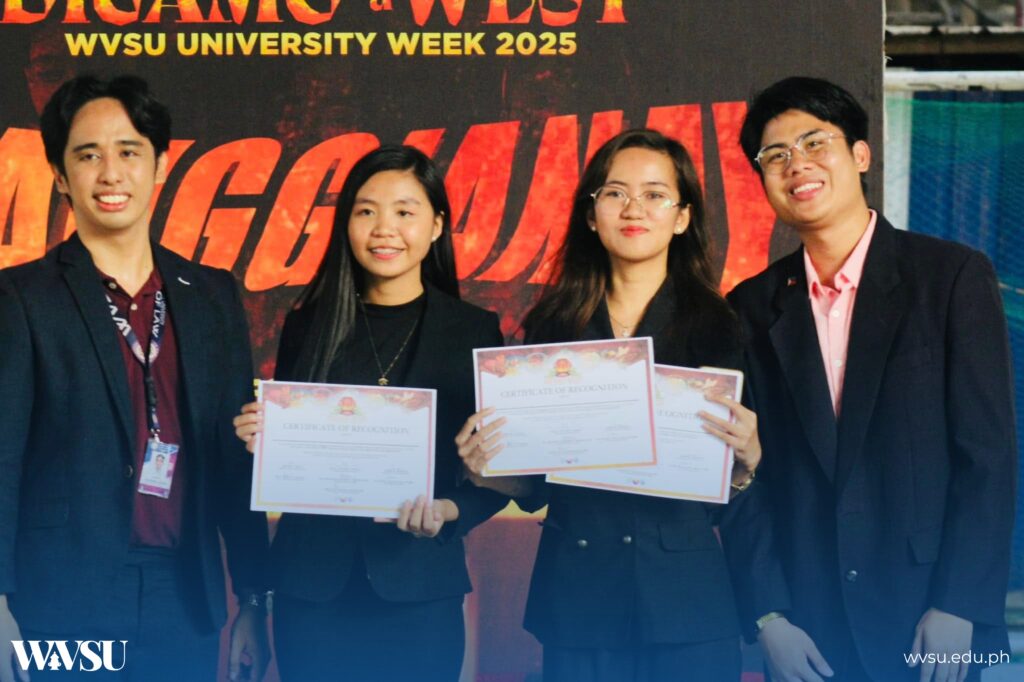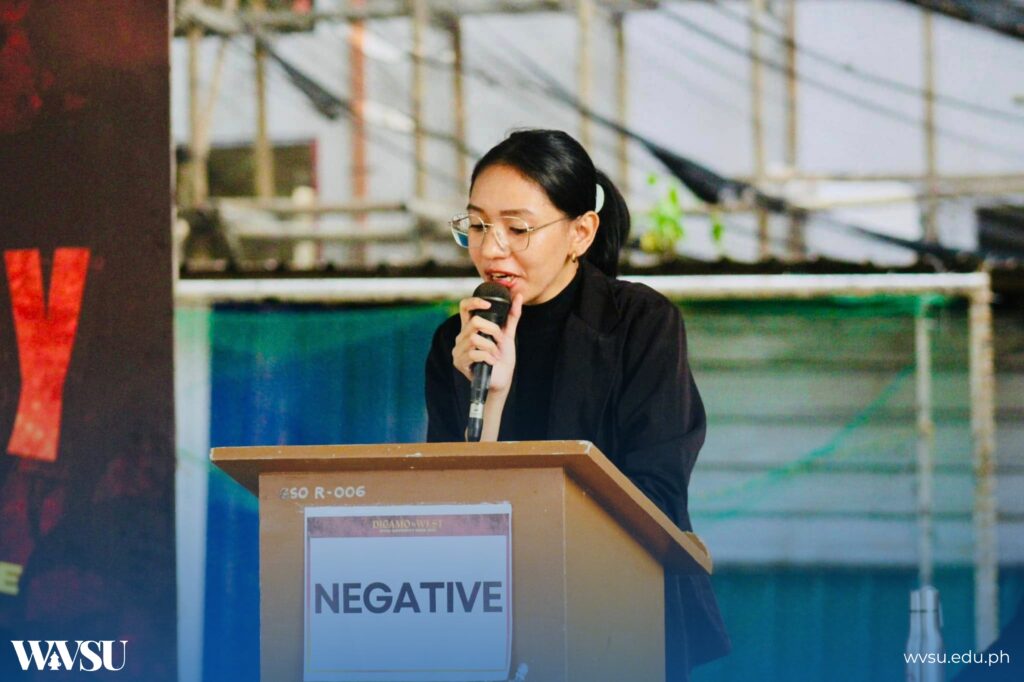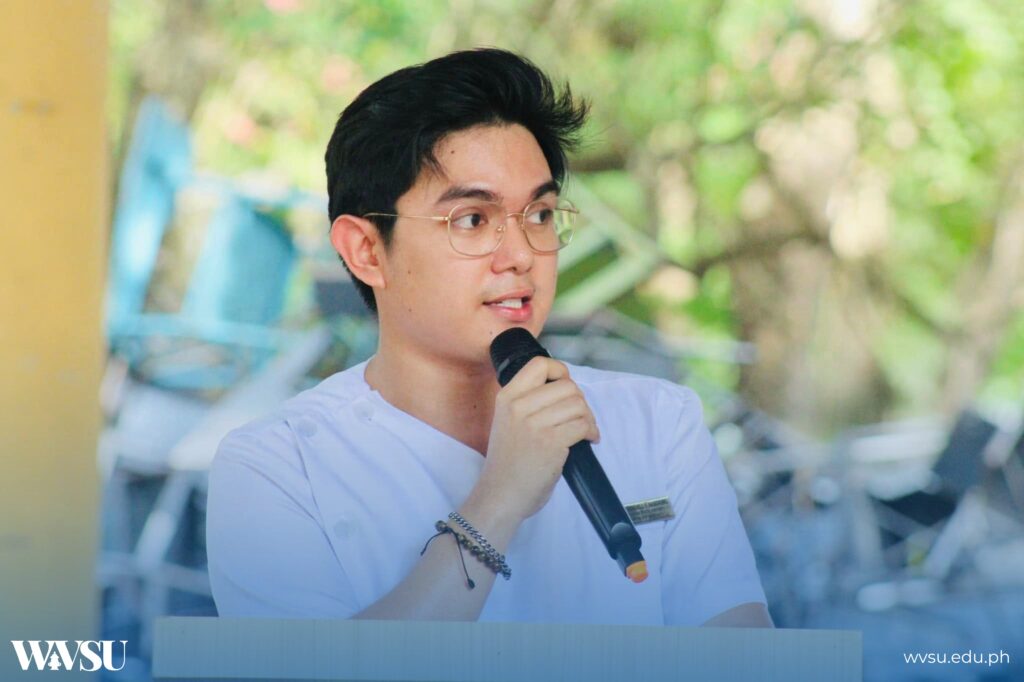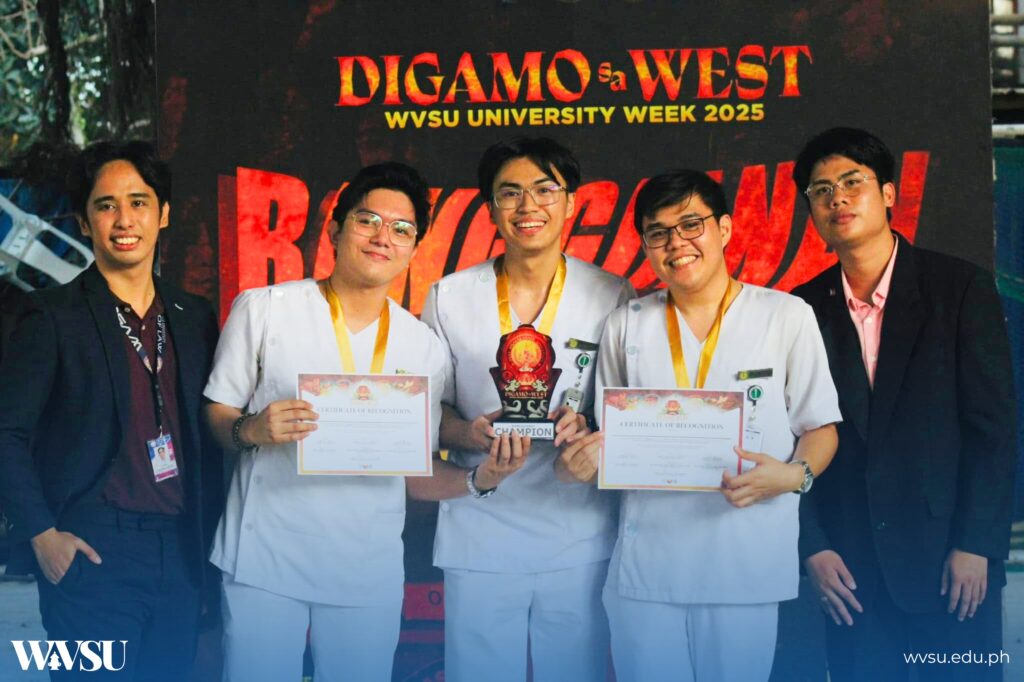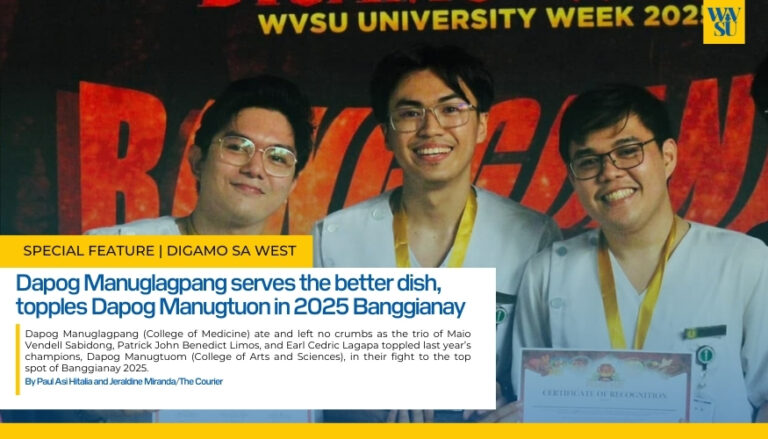Dapog Manuglagpang (College of Medicine) ate and left no crumbs as the trio of Maio Vendell Sabidong, Patrick John Benedict Limos, and Earl Cedric Lagapa toppled last year’s champions, Dapog Manugtuom (College of Arts and Sciences), in their fight to the top spot of Banggianay 2025.
In this ultimate battle of wits and words, the two best teams argued whether the mandatory Reserve Officers’ Training Corps (ROTC) should be revived as outlined in Senate Bill 2034. Dapog Manuglagpang served on the affirmative side, while Dapog Manugtuom was on the negative side.
The finals round was opened by USC Councilor and University Days event chairperson Rixfel Aperong. She emphasized the value of debates in challenging personal beliefs and encouraging exploration of new ideas – a key indicator of someone’s knowledge of a certain topic.
The debate was opened with Manuglagpang’s necessity speaker, Maio Vendell Sabidong, who called for a “safer, stronger and more prepared Philippines” as he outlined how tensions with China along with the sheer number of disasters the country faces necessitate the training, discipline, and civil service that ROTC provides.
In response, Dapog Manugtuom’s necessity speaker, Kyla Mae Yapendon countered with her own set of arguments against Mandatory ROTC. She argued that our national defense encompasses more than just military training, further adding that Mandatory ROTC should only be reinstated in response to extreme societal needs. Instead, she proposed that we need modern military equipment – not mandatory ROTC.
Patrick John Benedict Limos, Dapog Manuglagpang’s beneficialityspeaker, then took the podium to outline the clear benefits that reviving the program would have. He cited the country’s lack of preparedness in both national defense and disaster management, reinforcing Sabidong’s argument that ROTC would help with both.
He acknowledged the horrors and abuses the previous mandatory ROTC program caused but swiftly argued that due to current laws, like the Anti-Hazing Law and the Safe Spaces Act, as well as the built-in regulatory committee outlined within the bill, enough checks and balances are in place to prevent such tragedies from reoccurring.
In response to Limos’ beneficiality speaker, Gelou Jane Bea Alilay quickly rebutted, saying that current NSTP already addresses problems related to disaster preparedness, citing Red Cross volunteers. She also pointed out previous issues linked to the Mandatory ROTC such as physical abuse, hazing and discrimination. She further argued that NSTP provides more diverse options which are centered around peace, collaboration, and nation building.
The duo also went head-to-head in two interpellation rounds where, amidst a flurry of questions, Limos proved to be a tough nut to crack as he got Alilay to agree that the AFP’s numbers are not sufficient.
Manuglagpang’s practicability speaker Earl Cedric Lagapa hammered home their point as he highlighted how enforcing mandatory ROTC is not only feasible but supported, citing statistics and adding that it would streamline the allocation of resources due to the reduced number of programs.
“[Mandatory ROTC is] not a repeat of the past but a reformed and accountable program,” Lagapa declared.
As the last to speak, Vaness Langrio, Manugtuom’s practicability speaker, argued against the statements of Lagapa, stating that treaties were not existent back when World War II happened. She also challenged the reliability of the data presented by the affirmative side, citing a “more reputable” survey with 20,000 respondents which resulted in the majority opposing the revival of Mandatory ROTC.
Further, she said that reviving Mandatory ROTC is impracticable due to logistical problems, saying that Mandatory ROTC would only add to the administrative burden to responsible agencies once implemented. She concluded that the government should instead focus more on programs that could benefit our nation and our system.
The two faced off in a fast-paced interpellation round where Langrio questioned the program’s effectiveness and the affirmative’s confidence in the program, considering it will begin with pilot testing. Lagapa kept cool, pointing out how all laws begin with pilot testing, and it is not a lack of confidence an opportunity to improve and learn from past mistakes.
Langrio closed off the negative side’s arguments by pointing out the flaws in their opponents’ reasoning, particularly with them misinterpreting facts, ignoring current geopolitical contexts and possible priority misalignment.
Her speech echoed their bench’s call for a “diverse pathway to national service”, giving all students the right to choose.
“Choice without effectiveness is meaningless,” refuted Sabidong in his rebuttal speech as he dismantled the negative side’s arguments, affirmed their points and, despite having half their numbers, cinched the debate.
He closed the match with a final shot, saying, “In Banggianay 2025, we served the better dish.”
While Dapog Manuglagpang emerged victorious, Vaness Langrio of Dapog Manugtuom served as the match’s best speaker, while Maio Vendell Sabidong of Dapog Manuglagpang was named the best debater.
In addition, awards for the best speakers and debaters from the semi-finals were also presented. Below are the results:
Match 1 (COM vs. CON)
Best Speaker – Beatrice Yvonne Sorogon – Practicability Speaker (CON)
Best Debater – Patrick John Benedict Limos – Beneficiality Speaker (COM)
Match 2 (CAS vs. COC)
Best Speaker – Kyla Mae Yapendon – Necessity Speaker (CAS)
Best Debater – Kyla Mae Yapendon – Necessity Speaker; Gelou Jane Bea Alilay – Beneficiality Speaker (CAS)
Meanwhile, here are the overall standings of the 2025 Banggianay:
5th place – Integrated Laboratory School
4th place – College of Nursing
3rd place – College of Communication
2nd place – College of Arts and Sciences
1st place – College of Medicine
As the event wrapped up, Federated Student Council Secretary Keven Rizzo Sitjar expressed his hopes that future editions of Banggianay would return independently, incorporating both Oxford-Oregon and Asian Parliamentary debate formats.
Story by Paul Asi Hitalia and Jeraldine Miranda/The Courier
Photos by Cassandra Alexa Ciasico
